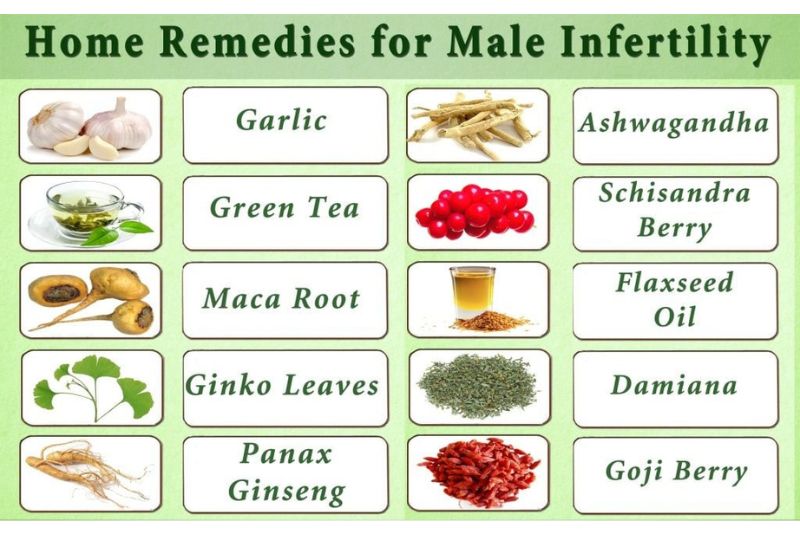The journey towards parenthood is a profound and cherished aspiration for many couples. While medical interventions play a crucial role in addressing fertility challenges, there is also growing interest in exploring home remedies and natural solutions to optimize male reproductive health. This article delves into the realm of home-based approaches, offering insights into some potential strategies that may support male fertility.
Nutrition and Supplementation
a. Vitamins and Minerals:
Certain vitamins and minerals are believed to promote male fertility. Vitamin C, present in citrus fruits and strawberries, acts as an antioxidant, protecting sperm from damage. Vitamin E, found in nuts and seeds, may improve sperm motility. Zinc, present in foods like oysters, lean meats, and legumes, supports sperm production.
b. Folic Acid:
Folate, a B-vitamin found in leafy greens, lentils, and fortified cereals, has been associated with improved sperm DNA integrity.
c. Herbal Supplements:
Herbal remedies like ginseng, maca root, and fenugreek have been traditionally used to support male reproductive health. However, it’s important to consult a healthcare professional before incorporating herbal supplements.
Lifestyle Modifications
a. Maintaining a Healthy Weight:
Both obesity and underweight conditions can negatively impact fertility. Achieving and maintaining a healthy weight through balanced eating and regular exercise may contribute to improved reproductive health.
b. Stress Management:
Chronic stress can disrupt hormonal balance and fertility. Engaging in stress-reducing activities such as meditation, yoga, and deep breathing exercises may support overall well-being and reproductive function.
c. Sleep Hygiene:
Quality sleep is essential for hormonal regulation and overall health. Establishing a consistent sleep routine and creating a sleep-conducive environment can contribute to improved fertility.
Reducing Exposure to Environmental Toxins
Avoiding Harmful Chemicals:
Exposure to certain environmental toxins and chemicals can negatively impact male fertility. Minimizing exposure to pesticides, heavy metals, and endocrine-disrupting compounds is advisable.
Heat and Clothing
Avoiding Excessive Heat:
Prolonged exposure to high temperatures, such as hot tubs or saunas, can temporarily affect sperm production. Wearing loose-fitting underwear and avoiding tight clothing can help maintain optimal scrotal temperature.
Limiting Alcohol and Tobacco
a. Moderating Alcohol Consumption:
Excessive alcohol intake can impair sperm quality and hormone production. Moderation is key to maintaining reproductive health.
b. Quitting Smoking:
Smoking is associated with decreased sperm count, motility, and morphology. Quitting smoking can lead to improvements in these parameters.
Time and Patience
a. Understanding the Menstrual Cycle:
Timed intercourse during the partner’s fertile window can increase the chances of conception. Understanding the menstrual cycle and ovulation can help optimize timing.
b. Maintaining Emotional Well-being:
Fertility journeys can be emotionally taxing. Open communication, support from loved ones, and seeking professional counseling when needed are essential for maintaining emotional well-being.
While home remedies and natural solutions offer potential avenues for supporting male fertility, it’s important to approach them with a balanced perspective. These approaches can complement medical interventions and contribute to overall well-being, but they may not be a substitute for professional medical advice. Every individual is unique, and what works for one person may not work for another. Prior to making significant changes to diet, lifestyle, or supplementation, consulting a qualified healthcare provider or fertility specialist is advised. By combining evidence-based strategies with the guidance of medical professionals, couples can optimize their chances of achieving their dream of parenthood.

